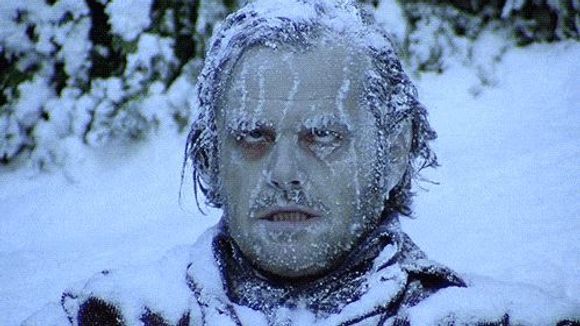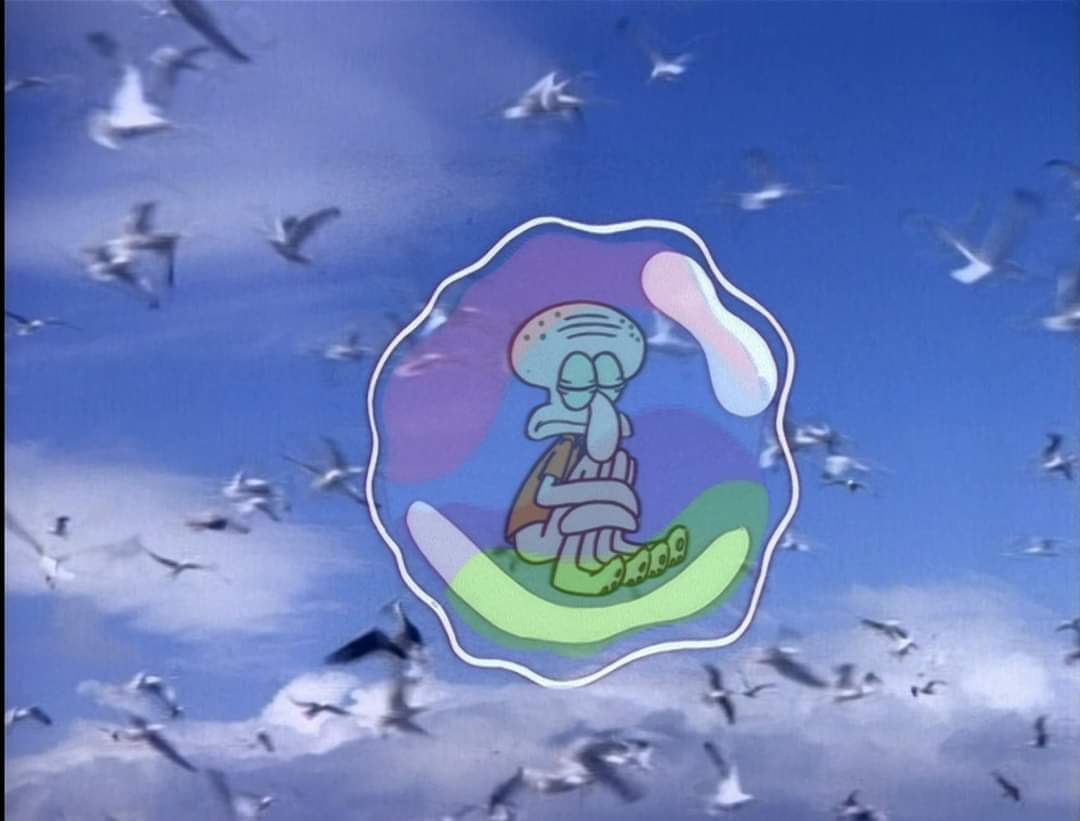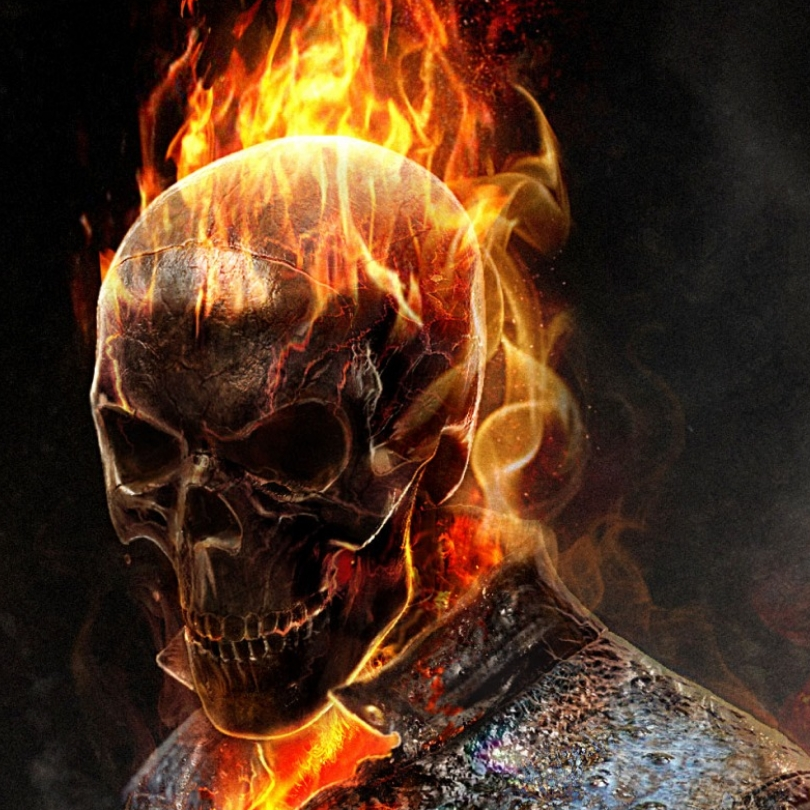When you use Celsius from birth 41C does make you say FORTY ONE DEGREES?!!!
Yeah, but it hits different. Smaller number is smaller.
That’s why I use Kelvin. THREE HUNDRED AND FIFTEEN DEGREES?!!
Degrees? While using Kelvin?? OP is a phony!
I’d excuse it as part of the joke
Should use Rankine with that logic. It comes out to 566.
Why not Centikelvin?
THIRTY ONE THOUSAND AND FIVE HUNDRED CENTIKELVIN??!!!Who is kelvin and why the fuck are his numbers so large
100%
It’s just Americans having American perspectives promoted as world views.
It’s about crossing into triple digits, a new order of magnitude, it feels heavy.
But it’s also underwhelming when your usual reference for over 100 is, “WHAT IT’S HOT ENOUGH TO BOIL WATER OUTSIDE!?”
American: IT’S A HUNDRED AND SEVEN DEGREES OUTSIDE
Civilized people: no it fucking ain’t, you overdramatic princess
It doesn’t really though for people who doesn’t use fahrenheit.
… for you.
brother, that’s what a world view is lmao, do you not understand this concept?
Most of us don’t really go anywhere outside of the US, the entire continental US is the literal equivalent of the collective EU. What do you want me to say? I literally don’t need to leave to US to experience something geographically unique.
I think they’ve meant world’s view, not worldview
im pretty sure the world’s view would be that we’re parasites destroying the well balanced nature of the ecology of the earth, but that’s just me.
geographically unique
Geographically perhaps. But the cultural and historical unique is something you are going to miss out on by staying inside your own home country for your entire life. You think your US regional differences are the same as the differences between two countries, but anyone who has experienced different countries will tell you in an instant that that is not so.
i mean culturally in terms of outside of the continental US sure. There’s plenty of interesting and unique culture within the US if you just go looking for it. Though a lot of it is going to be somewhat westernized in essence. If you want more eastern culture, obviously you’re going to have to go farther east, but i feel like that’s a given.
On the other hand, if it was 107°C outside, the outrage would be so much more justified.
But much less vocal.
You know, because we’d all be dead.
No, he’s right. The “one hundred” part really does add certain powers, Austin Powers
It’s that extra “one” of incredulity.
40 degrees, that’s just too hot.
41? You’ve got to be fucking kidding me.
In Australia we go with “Farkin hot”
By that metric, kelvin would be even better though.
by that metric
Americans cannot understand any metric
2 liter bottle.
Checkmate, athiests.
Also we have electric, water and gas meters smh
This is why I say ‘metre’ for the measure and ‘meter’ for the measurement device
And Demeter for the harvest
9mm
We’re more familiar with 5.56x45mm thanks to all our school shootings thank you very much.
I would make a bet that more mass shootings are done with 9mm. Depending on which shootings they consider ‘mass’ I see estimates from 60-80% for handgun usage. I’m sure the cheap .22 is a large number, but 9mm is probably right up there. There is a large bias in reporting the school shootings and shootings involving rifles by the media. They almost ignore the others.
28 grams to an ounce
In point of fact Americans have gotten impressive results out of far more complicated metrics than metric. It’s not a matter of understanding, it’s a matter of pride. And of not having to buy all new tools.
You miss out on screaming that it’s negative anything though.
-40F = -40C
Kelvin doesn’t have a negative.
The best system would have 0 at a mild, comfortable temperature, and go up or down by 100 degrees per one degrees Fahrenheit.
But mild and comfortable is different for different people who are acclimated to different weather.
We need a defined ‘mild’ temperature. i vote for 70F/21C.
It’s a bit chilly for the warm weathered folks and a bit warm for the cold weathered folks. Seems reasonable but I’m open to suggestions.As a cold weathered folk, I can confirm that 70 is my upper limit for nice temperature
I’d adjust it to 68/20 just so it lines up with whole numbers in both systems. And on second thought, make it 90 per degree Fahrenheit so any whole F or C value can convert to a whole number.
it needs to be a range, you can’t really just have a single point, something like 50f to 70f would be good. Some people like a little below, some people like a little above, the 60s are generally pretty comfy all around though.
We also need to consider clothing as well. Which i do in this case.
0 for freezing because water falls from the fucking sky.
You can absolutely yell about that. And when Fahrenheit flips to negative, you’re ready to express some big feelings about how fucking cold it is.
And Rankine would be even better than Kelvin in terms of “big number go brrr.” Water boils at 671 R.
Of course, Rankine is the most obnoxious unit I’ve ever had to deal with, but those numbers sure are big!
You mean it’s THREE HUNDRED AND FOURTEEN FUCKING DEGREES OUTSIDE?!
Please raise this temperature by 1.4x10^-23 Joules - statements of the utterly deranged
Joules are energy. You need thermal capacity to turn them into temperature.
For proof that this thread is just people justifying what they know as better somehow, look no further than Canada.
We do cooking temps in Fahrenheit, weather in Celsius. Human weights in pounds, but never pounds and oz. Food weights in grams, cooking weights in pounds and oz. Liquid volume in millilitres and litres, but cooking in cups, teaspoons and tablespoons. Speed & distance in kilometres, heights in feet and inches.
Try and give this any consistency and people will look at you like you’re fucked. The next town is 100km over, I’m 5ft 10in, a can of soda is 355ml, it’s 21c out and I have the oven roasting something at 400f. Tell me it’s 68f out and I will fight you.
People like what they are used to, and will bend over backwards to justify it. This becomes blatantly obvious when you use a random mix of units like we do, because you realize that all that matters is mental scale.
If Fahrenheit is “how people feel” then why are feet useful measurements of height when 90% of people are between 4ft and 6ft? They aren’t. You just know the scale in your head, so when someone says they’re 7ft tall you say “dang that’s tall”. That’s it.
We do cooking temps in Fahrenheit, weather in Celsius.
Fahrenheit: let’s use “really cold weather” as zero and “really hot weather” as 100.
Celsius: let’s use “freezing water” as zero, and “boiling water” as 100.
Canucks:

Fahrenheit: let’s use “really cold weather” as zero and really hot weather as 100.
I don’t really have a horse in this race but this logic doesn’t seem legit to me.
How is -17°C really cold weather AND 37°C really hot weather?
One is actively trying to kill you if weren’t already dead by the time the weather got that bad. The other just makes your nuts stick to your thighs – if you’re in a humid place.
I’d agree with the logic if 100F was equal to something like 65°C. 🤷♂️
It makes no sense because that’s not what the 0 of the Fahrenheit scale is. The 0 point is the coldest an ammonium chloride brine mixture can be cooled to. The 90 point was an estimated average for human body temperature (it was adjusted up over time). These were chosen because the goal of the scale was to provide a way for people to have a defined temperature scale with a range and degree size that could be reliably reproduced without passing around standardized tools. 100 is really hot because human bodies were used as a reference for the high end, but the low end has nothing to do with the human body.
Geometric construction plays a role in there as well: the 180 degrees between the boiling point and the freezing point of water was not accidental.
but like isn’t that the whole point of celsius? all you need to calibrate a C thermometer is some water: when it starts freezing it’s 0°C and when it’s boiling it’s 100°C, super simple and accessible.
It’s not like “the estimated average human body temperature” is particularly accurate, and surely no matter what you mix into water it won’t magically boil at the same temperature regardless of air pressure?
You’re totally correct that Celsius is the more sensible scale with easier to replicate reference points (when using water). It was also invented almost 30 years after the Fahrenheit scale and with all the insights gained from that period of technological advancement. In fact in the modern day the Celsius degree size is defined in reference to the Boltzmann constant since Celsius is essentially the Kelvin scale with the numbers moved around.
It also used 100 as the freezing point of water and 0 as the boiling point when originally proposed, which changed after Anders Celsius died because everyone knew that was a weird way to do it.
an ammonium chloride brine
At what molar concentration? Was it just as much NH4Cl as he could dissolve at ambient temperature and pressure?
As I understand it, yes it was a saturated solution.
0f is pretty fucking cold outside, your nose hairs start to freeze in this weather. It’s genuinely uncomfortable and you can die pretty easily if you aren’t prepared for it. 100f is similar, anything over 100f and you start to get into straight heat exhaustion and potential heat stroke region of danger. it’s really not that bad? Sure if you’re like, standing outside doing nothing in the shade, you’ll be fine, but do some labor and you might meet the fabled heat exhaustion fairy.
Obviously, when you convert it to celsius, it seems really fucking weird, That’s pretty normal for conversions though. Like just to be clear, if you round these numbers, they make more sense. -20 c and “damn it’s really cold out” you round up to 40c and “damn it’s really hot out”
also im not really sure what you’re trying to say, but 0f isn’t like, going to kill you kill you, it’s not pleasant, but in the right attire you’ll be fine. -20 f and you start getting closer, -40f and you really start having to think about it. Are you aussie or something? This scale seems really shifted up to me. “nuts sticking weather” is like 80f and humid here.
I’m saying that 0F is waaaaaaay more dangerous than 100F so the logic of those particular temperatures being the 0-100 ends of the scale can’t be explained by how dangerous they each are.
Almost everyone would be fine staying outside for 30 minutes at 100F without no external help (shade, cool drinks etc). Almost nobody would be fine after staying outside at 0F without external help (parka, thermals etc).
To me, with absolutely no data, it feels lie:
- 0F is as dangerous as 140F (you’re long dead if you’re outside in both cases)
- 100F is as dangerous as 40F (mildly uncomfortable but safe for a while)
So calling 0F and 100F both “really dangerous” and using that to justify them being the respective points of 0 and 100 disingenuous. Like, use Fahrenheit if that’s what you’re used to - I use it too because that’s what I’m used to. But I don’t explain the insane system with “it’s because the two ends are reallllly dangerous.”
I’m saying that 0F is waaaaaaay more dangerous than 100F so the logic of those particular temperatures being the 0-100 ends of the scale can’t be explained by how dangerous they each are.
idk about that though, i mean maybe if you go outside completely naked, sure. But idk who would be doing that. I’ve regularly been outside in close to 0f temperature in lighter clothing, it’s not pleasant, but im not going to freeze to death within twenty minutes. Plus you can also do physical activity, and as long as you regulate sweat, you’ll be fine. Although sweat can be particularly dangerous in colder weather.
Almost everyone would be fine staying outside for 30 minutes at 100F without no external help (shade, cool drinks etc). Almost nobody would be fine after staying outside at 0F without external help (parka, thermals etc).
i think that’s unreasonable though, you just wouldn’t be going outside at all in those clothes, in the same way that you wouldn’t go outside in 100f weather in a full winter get up. You would literally die.
140f as a relative measure is wild to me, in 140f if you’re outside without an air conditioned vehicle (death valley) and you don’t have water you will die within about a day. 100-130f is considered “extreme heat” in death valley, which has a website that you can pull up for some relevant information. Once your body is over about 110f internal temperature, you’re fucking dead. Unless you have a way to either redirect sunlight from hitting you, and water to replenish that lost from sweat, you die really quickly.
0f isn’t considered “extreme cold” that would be something like -40c (or f, they’re the same) where basically everything starts to freeze, and i’ve seen people do overnight camping in that weather. It’s perfectly doable, obviously not without gear, but who isn’t bringing gear? Hell you can bring a space blanket with you, with the right gear you can easily exist in 0f weather for a prolonged period.
I’m not sure where you’re quoting the “really dangerous” from because i just said both of them are “really hot/cold”
But I don’t explain the insane system with “it’s because the two ends are reallllly dangerous.”
did i say this anywhere??? I feel like i’m schizophrenic.
Thank you. That argument bugs the heck out of me.
maybe it’s a climate thing? Where do you live, here in ameica it’s quite literally the best way to describe it. We see swings below 0f at the coldest parts of the year, and upwards of 100+ in the hottest parts of the year.
So why not make the temperature go to the hottest? Let me guess, 0 isn’t the coldest either in America, right? It’s just so arbitrary, and pure cope to say it’s the best way to describe temperature.
why not make it more arbitrary? Why not leave metric rules and use something like twelve that has fractions? Because it’s nice. It’s pleasing having it be 0f and 100f, it’s a clean range, and it’s also pretty comprehensive in terms of the temperature variance.
It just happens to work out pretty nicely.
You’re literally just applying the anti-thesis of the metric system to the question, and asking me why we don’t do it that way, idk what you’re expecting me to say here.
do celsius users not consider something like -20c to be “pretty cold” and 40c to be “pretty hot” That’s equally as arbitrary.
It’s just so arbitrary
All of them are. The decision to use water at all is completely arbitrary. Even Kelvin and Rankine are completely arbitrary: the “width” of the degrees is not defined by a physical factor, but relative to an entirely arbitrary concept.
Technically all arbitrary, but Fahrenheit is definitely on a whole different level of arbitrary.
Celsius - 0 = precise freezing point of water and 100 = precise boiling point
Kelvin - same as C, but shifted so 0 is the precise lowest possible temperature
Fahrenheit - 0 is the imprecise freezing point of some random brine mixture, 100 is the imprecise average body temperature of the developer
We live on a water planet. The weather we care about is water.
If you look at the overnight low you probably want to know if frost was likely. Guess what Celcius temperature frost happens at.
The records are -80°F and 134°F
That’s quite an error in a “whole human experience in zero to one hundred” system
Every time a heat wave brings 100F, the news starts reporting about old people dying. Every time the temperatures reach zero, same thing.
Personally, I can handle the cold much easier than the heat. I get stupid-brain working more than 30 minutes at 95F. Another 15 minutes and I can’t catch my breath, lose fine motor control, and start feeling faint. Drenching myself in water - the colder the better - every 20 minutes or so is the only way I’ve found to be productive above 100F. I feel like 100F is actively trying to kill me.
0F is where it starts getting difficult for me to stay warm without an additional heat source.
Lmao are you a penguin or something? Please tell me that you’re exaggerating to make a point and aren’t seriously saying that you’re capable of staying warm at -10°C (14°F) “without an additional heat source.”
I mean, I have clothes. Long underwear? Layers? Coats, gloves, hats, scarves?
They say you can always put on more clothes if you’re cold, but that’s not really true. Insulation adds bulk, and bulk reduces mobility. Around 0F is where I start to have real trouble wearing enough clothing to stay warm while still being able to perform the activity that has me outside in that weather. Somewhere around 0F, clothing doesn’t really cut it, and I need shelter or additional heat.
That’s a lot of moved goalposts to justify the weird temperature scale logic but okay.
You’ve essentially justified that 0F and 100F are what they are because some old people died when it was 100F (most people, including the old are perfectly fine at this temperature all around the world) and because you can manage at 0F while wearing a ton of layers and not need a heat source (do all old people manage to survive just fine at 10F or 20F by just putting on some layers?).
Either way, this pointless conversation had gone on for way too long. Have a good day! :)
Celsius is for scientists and nerds, Fahrenheit is for normal idiots. It’s not rocket surgery.
This makes a lot of sense, and why I’d never survive in Canada.
As a Canadian idk why your using us an an example, we are wrong to do so and we blame Americans for giving us this bad habit.
I just see it positively and choose to believe you’re in the process of transitioning to enlightenment (metric). ;)
Outdoor temperature in °C, unless you’re talking about an outdoor pool then it’s often enough °F :-)
I think part of the reasons it’s so mixed might just be due to how many Amero-centric devices and parts are common between the two countries.
Y’all can take your shitty Phillips screws though. Roberts is by far superior ;-)
Imagine weighing people as big rocks, though.
Until the UK changes that, us Americans and Canadians can rest assured that nothing we are doing is quite that ridiculous.
Tell me it’s 68f out and I will fight you.
Note to self: High heat levels make Canadians cranky.
then why are feet useful measurements of height when 90% of people are between 4ft and 6ft? They aren’t. You just know the scale in your head, so when someone says they’re 7ft tall you say “dang that’s tall”. That’s it.
to be clear, we use feet and inches, and there is historical precedent for breaking things down once they get past a certain grouping, we only have 10 fingers after all. To me the difference between 200cm and 220 is literally fuck all. You ask me the difference between 4 ft and 6ft and i can pretty quickly tell you.
I find it weird that when measuring height in metric, people using cm exclusively, i’ve noticed this a lot actually, people will use cm or mm in places where it arguably doesn’t make any sense. I could see the justification for doing math maybe, but like, that defeats the whole point of it being metric no?
Shouldn’t you be using meters and cm for height specifically? Since most people are a good bit over one meter i feel like it would make sense to do it that way. But then again that’s just kind of a shit bucket worth of options you have, ideally you would use decimeters, but nobody uses those things for some reason.
Most of Europe just uses metres for people’s height. 1.67m, like that. I have no mental picture of that, so it doesn’t work for me. But they don’t seem to have any trouble, further evidence that it’s all just what you know.
hm, that’s weird, i’ve seen this first hand in a handful of cases, guess i just get the weird ones. Granted i still see it holding true in things like construction, where i guess it makes more sense, but it seems weirdly arbitrary to me.
I find it weird that when measuring height in metric, people using cm exclusively, i’ve noticed this a lot actually, people will use cm or mm in places where it arguably doesn’t make any sense. I could see the justification for doing math maybe, but like, that defeats the whole point of it being metric no?
Why is that defeating the whole point of being metric? If you know someone is 183 cm tall, you also know that they are 1.83 m tall. If its easier to say the length in cm, you do. No need for “one meter and eighty-three centimeters” or “one point eighty-three meters”, just “a hundred and eighty-three centimeters”. Often you just skip saying the “centimeters” part as well, because most people can see that you’re not the size of a skyscraper without getting a ruler out.
yeah idk, i guess it’s just weird to me, because here in the us if you measured someones height in inches alone, you would be chased out of a room. We strictly use feet and inches, and then yards if referring to a more “broad” range. So you can very safely assume something is in feet and inches if its just two numbers stuck together.
I feel like i could very easily get confused with metric if i’m not running a consistent rule for default units. Seems like an easy way to get a random x10 error in there to me.
As you pointed out previously, nobody uses decimeters, so x10 errors are not that common.
i’m just gonna say that the joke here is that it was a 10x error. But that’s retroactive, so.
To me the difference between 200cm and 220 is literally fuck all. You ask me the difference between 4 ft and 6ft and i can pretty quickly tell you.
To you. But you are aware that this is not the case for people (almost the rest of the world) who are using metric, right?
To you. But you are aware that this is not the case for people (almost the rest of the world) who are using metric, right?
i mean i would assume so. But i have no direct reference to what 200cm is other than it’s somewhere about 6ft or 2 yards. something like 6’ 5" i think. I would need to know the height of like 50 other people to be able to make a relative distinction there.
If Fahrenheit is “how people feel” then why are feet useful measurements of height when 90% of people are between 4ft and 6ft?
Those are two different things. Hope this helps.
It doesn’t help at all, it’s being intentionally obtuse. You know what I mean, it’s unhelpful to pretend otherwise and pick a fight over it.
i still don’t see how this is intentionally obtuse, feet are a mid point between inches and yards, it just makes sense to break down things over a certain amount to a much more palatable scale. Everyone knows roughly what 1 ft is, and everyone knows roughly what 1 inch is. Paired together you can get a pretty rough and accurate guesstimate of height. I feel like it’s also pretty expected for it to be within the range of 4-6 ft. Most people don’t really measure feet outside of that range, unless you’re doing construction.
humans are a comparatively arbitrary height so i feel like you’re just complaining about the height of humans being weirdly arbitrary? Out of all the systems you could use for height, ft and in is pretty well tuned to the human nature, you’re not gonna do much better.
If an argument is being made for one thing, Fahrenheit, it’s not relevant to bring up a different thing. Why is feet a useful measurement? Maybe it’s not, we’re talking about temperature.
Yeah like the metric system has good arguments for why it’s measurements and weights are better, mainly conversion being easier, but for temperature there really isn’t an argument. I would make an argument for Fahrenheit as it gives more precision without having to use decimals which at least in America isn’t a thing for temperature. But those are pretty minor things and I do tend to agree it comes down to what you grew up with.
without having to use decimals
This fear of decimals is a strictly American thing. Celsius achieves more precision with decimals than fahrenheit without decimals. And this American fear of decimals is pretty funny, considering you will happily do advanced fractions as soon as you are doing length measurements.
I don’t mind decimals at all, it’s more that I don’t trust companies to actually deal with supporting decimals when making the switch. Plus the last time I discussed this on Lemmy someone was saying that decimals aren’t even universally used and it might depend on what you get whether you get that precision or not. Either way like the main point of my post was anyways these are minor arguments and at the end of the day there isn’t really a reason to use Celsius vs Fahrenheit.
Can you feel the difference between 23.5° and 24? I can’t. You don’t often need precision to tenths.
In Australia most weather providers give you whole degrees, the bureau of meteorology gives you to one decimal in reports and whole degrees in forecasts
My coffee and beer boilers can hit high precision temperatures to variously 0.1° or 0.5° precision. The beer boiler gives 3 digits - hundredths below 10°, tenths below 100°, whole numbers 100° and over
You can choose the precision of thermometers you wish to buy for yourself
I have seen fahrenheit thermometers which are hard to read to better precision than 5 degrees
1cm3 of water weights 1 gr and needs 1 calorie to rise 1ºC.
But calories are now obsolete and the unit is Joules.
The only good thing about Fahrenheit is that 69 degrees (20.5 C) is a nice temperature.
And you can bake things at 420
You could bake something at 420 Celsius too, assuming your okay with charcoal as the end product
Or Pizza!
ok you actually convinced me, Fahrenheit is better (except I can’t spell it properly without autocorrect)
I can’t spell it properly without autocorrect
This is genuinely the most inconvenient thing about Fahrenheit
you can also bake things at 420C if you’re not a coward about this (like proper thin pizza) (maybe it’s a bit too high but you get the idea)
Well… If it’s only for a few seconds…
You can make the temperature dial of an oven have matching degrees of rotation and degrees Celcius.
Turn the dial to point straight down to bake at 180°
Turn it 3/4 of the way to cook a pizza at 270°
a 69°C cup coffee on winter is nice
A cup of lukewarm coffee please.
Edit: my wrong, I thought it was 69°F !
All my excuses
According to James Hoffmann, the ideal temperature to enjoy coffee is between 50°C and 60°C, he may know a thing or two about coffee, and you may think the coffee you drink is hotter that it really is.
Also it’s a 0-100 scale of how hot it is outside, and it requires no prior understanding to use it as such.
If that was true outsiders should be able to use Fahrenheit without much explanation. I’ve never got a clue what the °F values mean, I always have to use a converter. It’s really not as intuitive as people who grew up with it seem to believe.
If that was true outsiders should be able to use Fahrenheit without much explanation. I’ve never got a clue what the °F values mean, I always have to use a converter. It’s really not as intuitive as people who grew up with it seem to believe.
because it’s all relative, and you need to actually know how the temperatures relate to the things you’re experiencing? I’m going to hazard a guess and say you’re comfortable with using celsius? Oops cognitive bias. You would have to test this on someone who doesn’t understand temperature yet. It just so happens that here in the US, it pretty conveniently lines up with those figures for us.
If your example cannot be proven on any existing person I’d argue it’s hardly relevant to our reality.
°F most definitely isn’t intuitive enough for people who aren’t accustomed to it to use. If it is more intuitive at all, it’s not to any meaningful degree.
If your example cannot be proven on any existing person I’d argue it’s hardly relevant to our reality.
possibly? Arguably you could still make the case that the existing range of 0-100f is more pleasant, and arguably nicer to use. But you would have to either find someone uniquely adapted to both systems, or you would have to do a lot of independent study on how humans interact with numbers and ranges of numbers. In order to find a specific answer it’s going to be quite hard.
intuition is bullshit anyway, it’s highly predicated on previous experience and an existing knowledge base, so i feel like that’s kind of arguing “well a race car driver drives good, so why don’t normal drivers drive good” kind of territory if you arent careful.
Yeah, which is why most people here in favor of Celcius argue that Fahrenheit isn’t, in fact, more intuitive and therefore more suited to describe the weather. Both are arbitrary, both can be learned and used very easily, the only difference is what you’re used to.
yeah, but i think arguing that celsius is “more intuitive” when the one primary advantage outside of science is that it lines up with water relatively nicely compared to fahrenheit, is like, ok.
32f and 212f and 0c and 100c aren’t really all that substantially different as far as the general use case goes.
Exactly. Fahrenheit is just metric weather.
By that logic, Americans should use km/h instead of mph. Going 0-100 is much better than 0-60. For the same reason you keep telling us why Fahrenheit is so much more intuitive.
TWO HUNDRED AND SEVETY THREE KELVIN I’M FREEZING
41°C sounds terrifying to me
Sounds like a great time to propose my system of temperature: Super Celsius. I’ll connect it to the freezing and boiling points of water just like Celsius, but while freezing remains at 0, boiling is now 1000. Get ready for a nice mild day of 250.
Kilocelsius
Removed by mod
Milicelsius = 0.001ºC
Kilocelsius = 1000ºC
we could use the freezing and boiling points of humans, for a change
That’s overboard; You’re fine just multiplying your Celsius by 2.75.
Lets ditch base10 entirely and use 0(freezing)-216(boiling). that means 0-1000 in base6.
Once again… the classic argument of: “Well, I grew up using this system, and I’m used to the system. I have built an internal intuition for how hot and cold the temperature is. I am used to >100 being hot! 40 is not hot!”
Well then. I grew up using celcius and… “IT’S FOURTY FUCKING ONE DEGREES OUTSIDE?” sounds just as hot.
it’s not about what makes more sense: what makes more sense is what you use everyday and is natural to you. 40+ C is freaking hot because when you experience it, it’s freaking hot. It’s about what the entire rest of the world is using as a standard.
In Ali Baba and the 40 Thieves, the number of thieves wasn’t really necessarily 40. The number was likely just chosen because 40 was an exaggerated number, much like when we’d say “I’ve told you a hundred million times”. So 40 as a shorthand for “a huge amount” seems fitting in celcius.

Strange, because it is bullshit.
Fahrenheit isn’t how people feel, otherwise 50° would be perfect temperature.
You Americans are just used to thinking in Fahrenheit, that is why you think it is how humans feel. As a European, I “feel” in Celsius.
Fahrenheit literally meant to base the scale with 100 being human body temp.
It was later rescaled by Cavendish to put the freezing point of water at exactly 32 and boiling point at exactly 212, giving a nicely-divisible 180-degree separation between freezing and boiling. That shift is why body temperature is 98.6.
I like this version better than “he had a fever when he measured 100 degrees” so I will choose to believe it without further research.
I hope you are correct.
The Report of the Committee Appointed by the Royal Society to Consider of the Best Method of Adjusting the Fixed Points of Thermometers; And of the Precautions Necessary to Be Used in Making Experiments with Those Instruments
Seems fancy and legit, I see no reason to actually read it and confirm the info.
Welcome to peer review!
Horse* body temp
I’m pretty sure that wasn’t actually Fahrenheit’s intention, more a happy accident. Also if your body temp is 100°F then you’re running a mild/moderate fever.
The scale was adjusted later to make freezing and boiling points land on exact numbers with an easily-divisible 180-dregrees between them (180 is divisible by 2, 3, 4, 5, 6, 9, 12, 15, 18, 20, 36, 45, 60, and 90).
https://archive.org/details/paper-doi-10_1098_rstl_1777_0038
I don’t usually run, but when I do, I run a mild/moderate fever.
I heard circular thermometers were how it was done then so he lined up 180° with 180°.
It literally was not.
I cited and linked my source from the 18th century when it was redefined. What’s yours?
Rating inflation. If someone called you a 5 or 6 out of 10, you’d feel bad. 7/10 is the bottom of acceptability, just like 72° is room temperature.
Removed by mod
You think that’s some copium, watch this:
When you’re a child having a sick-day, you get to stay home from school and watch TV, which is absolutely 💯. What temperature do you need to have to get a sick-day? 100°
In foreign units, 100° is the temperature at which water boils. What has boiling water ever done for anyone? Literally nothing. But in freedom units, water boils at 212°. 212 is a palindrome and palindromes are so cool, they could be classified as 💯. As we all know, 100 is the coolest number, which is why that’s how high grades go.
Finally, using USA standards, calculating calories in food merely requires measuring how much energy is required to raise 3.5 oz water 1.8° F by burning the food and then dividing by 1000. Using your weird unpatriotic methods, you’d have to measure how much energy is required to raise 100 grams of water 1° C by burning the food and then not dividing by anything??? Sounds lame!
Someone give me a Gatorade, those mental gymnastics were a hell of a workout
Even better, I don’t even feel a fever until it’s 104°F. I’ve just looked it up, and that’s exactly 40°C. Even my body likes round centigrade numbers.
riddle me this then mr european man (i assume for the context of shitposting)
would you feel ok with getting half of everything you did being completely wrong, or would you feel ok with only three of those 10 things being completely wrong.
half is formidable, like you tried, probably. 7/10 is on the way to being good at it though.
Removed by mod
it’s a question surrounding human bias on the subject of correctness. Most people would argue that 7/10 is “ok or good” where as most people would argue that 5/10 is “not the worst, but not good”
we’re not fundamentally biased to the midpoint of something, we’re fundamentally biased to the perceived average of something.
otherwise 50° would be perfect temperature.
I love it when it’s 50ish out and sunny. You don’t get all sweaty, plus you can wear cozy socks and sweaters or just go out in short sleeves and both are perfectly fine. The bugs all start going into hiding at that temperature but the grass and leaves are still green
As a European I can perfectly feel the 0 degree. I step outside and 5 seconds later I can tell you if it’s below zero or not.
For me “it’s now really hot” in summer is exactly when it’s over 30C. It being 86F doesn’t make any more sense. Approximately above 35C I will avoid going outside. Which would be 95F, not 100. From here, the temps in summer in the south of Europe are often around 100F at peak. Above or below doesn’t matter.
All that Fahrenheit scale is good for is if you live in a continental climate, more to the south, e.g. some useless place like Oklahoma, where 0F is approximately year low, and 100F is approximately year high.
For all other places, where the temperature delta over the course of the year is not as extreme, this Fahrenheit scale is as unintuitive as celcius, e.g. you just get used to it.
For me “it’s now really hot” in summer is exactly when it’s over 30C. It being 86F doesn’t make any more sense. Approximately above 35C I will avoid going outside. Which would be 95F, not 100. From here, the temps in summer in the south of Europe are often around 100F at peak. Above or below doesn’t matter.
you guys need to stop converting directly between temperatures, you’re right at 86f, bump it up to 90f and woah, suddenly it’s actually a nice round number.
You’re too conversion pilled to realize that the human experience isn’t fundamentally and objectively representative. 1 degree celsius isn’t super noticeable, just like 5 degrees fahrenheit isn’t super noticeable either.
50 degrees is a damn good temperature. I won’t stand here and let you besmirch 50 degrees.
Its not the “perfect” temperature but what temp in celcius is “perfect”? What a ridiculously proposition that there’s a perfect temperature.
20 is perfect.
that’s pretty comfortable, but between 50 and 70f which is about 10 and 20 c is the “comfortable range”
50F is the perfect temperature.
That’s 10°C for those who want to judge you. And you’re wrong, the perfect temperature is 17°C. Not too cold, not too hot.
The correct rebuttal is that 69 degrees is ideal ambient temperature.
As is typically responded to this ‘response’: there are a large number of people-many European-who would unironically say that 50°F (10°C) is, in fact, the ideal temperature.
They’re wrong, of course, but they exist.
But you’re also assuming that the exact middle of the range is where the ideal sweet spot should be. That’s wrong. People generally can better handle larger temperature deviations that are colder than their ideal than hotter deviations.
The difference is that humans emit their own heat. Combined with our funny tendency to wear insulative clothing that can asymptotically approach zero net heat exchange with the atmosphere, acceptable temperatures skew wildly towards and beyond freezing.
Meanwhile, without some kind of acting cooling mechanism, any temp even slightly above fever temp is inevitably fatal. You can only take off so many layers. What are you going to do, take off your skin? Sweating helps us humans a lot, but evaporative cooling can only do so much to reverse the heat gradient.
50 F is excellent… with a light jacket or a blanket. Not so much if you’re naked.
Why would you pick 50 for the perfect temp? Genuinely curious why land on that number.
Because 0° is the minimum a body is supposed to endure according to the tweet, and 100° is the maximum a body should endure.
So the ideal temperature should be right in the middle.
But it isn’t, so Fahrenheit isn’t “how people feel”.
Why should the ideal temperature be right in the middle of the range?
It’s no surprise that the maximum end of the range is right around the body temperature, as it’s difficult for the body to keep itself cool once the environment is around or warmer than the body temperature. Sure, we can sweat, but that uses up a lot of water and people generally find that getting all sweaty to not be pleasant. Run out of water or raise the temperature too much and it gets dangerous pretty quickly.
On the other hand, if the environment is a lot cooler than the body temperature, then it is difficult for the body to keep warm. I’m sure for our distant ancestors who lived in what is now Africa, their minimum temperature was much higher, possibly putting the ideal temperature right around the middle of their range. Luckily for us, we have clothing and can put on more clothing to stay warm, which is how we can now make the minimum so low. But while we can use clothing to lower our minimum, we really don’t have anything different to raise our maximum vs. our ancestors - we’re both limited by how well we can cool ourselves by sweating. So for that reason it doesn’t really surprise me that our ideal temperature is towards the upper end of what we consider the minimum and maximum temperatures.
Because it is in the middle of that “0 is really really cold, 100 is really really hot” “human feeling” fahrenheit scale you guys keep going on about.
This is the first time I’ve heard about a “human feeling” scale so sure, 50 must be perfect.
Fahrenheit isn’t how people feel, otherwise 50° would be perfect temperature.
it is though? It’s like perfectly comfortable because you can dress up just enough to where you’re actually wearing a decent bit of clothing, but you can also dress down to a pretty light set of clothing as well.
This is also ignoring that this is both, arbitrary, and also completely subjective to the person.
The human body might end up liking 70f more than 50f, purely because it’s 96f inside the body, so something lower to allow heat transfer, but not low enough to be physically uncomfortable would be more expected.
Actually, here’s a good question, why do you land on the 50f point? Are you expecting the middle to be the most optimal point of perfection? Or is this just a metric brain thing?
What annoys me about that phrasing, is that “how water feels” is quite relevant to how humans feel.
The obvious example is that if it’s below 0°C, it starts freezing, which causes slippery sidewalks, snow, dry air, all that stuff.
But just in general having a feeling how much water will evaporate and later precipitate at certain temperatures, and even stuff like how hot beverages and cooking temperatures are, it’s all still relevant for humans…Humans are mostly water. If water boils, then humans will mostly boil too.
The obvious example is that if it’s below 0°C, it starts freezing, which causes slippery sidewalks, snow, dry air, all that stuff. But just in general having a feeling how much water will evaporate and later precipitate at certain temperatures, and even stuff like how hot beverages and cooking temperatures are, it’s all still relevant for humans…
that’s an interesting idea, BUT, the boiling point for water also exists under f as well, it’s just 212 f, which if you want to round for convenience, is 200f. 100f is just about half the boiling point of water.
I guess you celsius folks might be more water pilled than the average US citizen, but it’s not like it’s impossible.
In Celcius water boils at exactly 100°C, and you don’t have to round, and 50°C is exactly half the boiling point of water.
Yes, Celsius users are waterpilled: the whole system is based on the temperature at which water freezes and evaporates at 1 atm pressure.
(You’re just fucking with us right? Like Celsius is has a coarser base unit, and the range applicable to human temperatures are not such pretty numbers, but you can’t be seriously thinking Fahrenheit makes more sense for when we talk about water?)
In Celcius water boils at exactly 100°C, and you don’t have to round, and 50°C is exactly half the boiling point of water.
unless you’re doing literal chemistry, the specific boiling point of the water doesn’t matter, especially for any subjective referential experiences you might have, such as, going outside.
(You’re just fucking with us right? Like Celsius is has a coarser base unit, and the range applicable to human temperatures are not such pretty numbers, but you can’t be seriously thinking Fahrenheit makes more sense for when we talk about water?)
i’m not saying it’s better, i’m just saying you’re having a failure of imagination to conceptualize the usage of the fahrenheit system if you so pleased to use it in such a specific manner, which almost nobody here does. You could still do it though.
Cooking is basically water based chemistry, so it makes a lot of sense to use Celsius.
idk man, there’s a lot of temperatures in cooking that are like, kind of close? Not that close, but like, kind of close. Even then, the one case where i consider it genuinely mattering is boiling water which like, you can just kinda know.
100F is just about half
Your scale in water terms starts at 32. 100 is nowhere near halfway between 32 and 212
the celsius scale literally covers 55% of the range of the fahrenheit scale. I’d say “about half” is perfectly reasonable.
granted, it skews since you’re starting on the low end. The figure is more like 122f right in the middle, which is, not great, but i wasn’t going to calculate the half boiling point as i’ve literally never seen it be relevant anywhere lol.
Celcius degrees are quite a bit larger than Fahrenheit degrees. 0 to 100C is much larger than 0 to 100F so I don’t get what you mean by Celcius covering about half of Fahrenheit. In any case neither scale runs out of numbers high or low
my main point was that accuracy matters a lot less with fahrenheit, because it’s so much broader. a range of about 10 degrees fahrenheit is the average subjectively experienced “change” in temperature, at least on the higher end, where there’s more difference between the individual numbers. On the cold side there’s a lot less variance as it meets at about -40 in both systems.
In any case neither scale runs out of numbers high or low
this is very true though, hard to run out of numbers when you can just make more up, although there is an ultimate limit in either direction, due to what temperature actually measures. That’s a physics thing though.
The words you are looking for are that Fahrenheit is more precise. But it’s not as there are an infinity of numbers between any two integers.
My thermometer at work which I use for health and safety stuff reports temperature to two decimal places. Had we wanted more precision we could have gone with twenty decimal places. In too big or too small metric units we use multipliers - metres are too small for long distances so we use kilometres (thousands of metres), metres are too big for construction so we use millimetres (thousandths of metres)
Where Celcius degrees are too big, people (scientists, since whole degrees or a single decimal is enough for everyone else) use milikelvins
Fahrenheit is literally a German dude making a scale from, “scheiße its chilly outside” to “oh mein gott, its hot out!”
Yeah. But Celsius refers to inside room temperatures. 0°C = yay, ice skating! 100°C = yay, sauna!
Temperature doesn’t care about your feelings.
Oh, how rude.

Their friend is a dumbass though.
EDIT: replied to wrong comment
That’s why I only use Kelvin. 314.15 sounds like 3 times more “WTF HOW HOT IS TODAY??!?” than your paltry 107
Forty-one sounds insanely hot as an outside temperature if that’s the standard you’re used to. And that’s the thing that the Fahrentards refuse to wrap their head around.
Fahrenheit is better because 69 is a nice temperature
Celsius is better because 69 is very hot
Yes but we all know you will never experience that 69 (and I think you know it too)
What? Never been in a sauna? Do it, it’s really nice!
You do experience 69°C if you go to sauna before it’s warm
Meh… Give it another couple of decades.

































